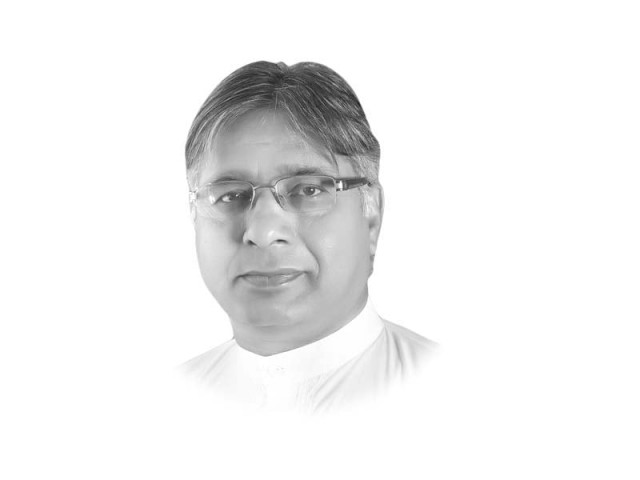Why we should celebrate the National Minorities’ Day
Celebrating National Day for Minorities with vigour and vision is a must for a discrimination-free Pakistan

The writer is a freelance journalist specialising in International law, rural development and public policy, and a director of the Centre for Social Justice
The OR became a living reality in Pakistan and became stronger with each passing phase. It incorporated two aspects — a preference for the majority religion in the state and a religious character of the latter. These two aspects cannibalised the remaining part of the OR that spelt out principles of democracy and rights. Three constitutions in Pakistan that were based on the OR were abrogated, held in abeyance and mutilated. Due to the aforementioned aspects, the Constitution in use is still a “weak document” as far as its potential to guard democracy and rights is concerned (debate in Supreme Court about basic structure of the Constitution, 21st Amendment and Zafar Ali Shah vs General Musharraf).
Even at birth, the OR preyed upon the principles that the Quaid-e-Azam cherished. For instance, the Lahore Resolution spelt out much higher guarantees for protection of minorities. It demanded that “adequate, effective and mandatory safeguards should be specifically provided in the constitution for minorities in these units and in these regions for the protection of their religious, cultural, economic, political, administrative and other rights and interests”. The constitutional law developed after independence did not manifest this generosity and courage. The much eulogised 1973 Constitution fathered by the OR reduced the constitutional guarantee in Article 36 to “legitimate rights and interests of minorities”. The use of the term “legitimate rights” was absurd because rights are the claims already acknowledged by the law; therefore, questioning their legitimacy points to malice, ignorance or fear.
The OR derogated from the finest of the principles that the Quaid stood for. For instance, the eighth point in his 14 points (1928) stated: no bill or any resolution or any part thereof shall be passed in any legislature or any other elected body if three-fourths of the members of any community in that particular body oppose such a bill resolution or part thereof, on the ground that it would be injurious to the interests of that community. The OR was passed ignoring 100 per cent opposition of the religious minorities represented in the Constituent Assembly on March 12, 1949 in total disregard of Jinnah’s vision. It was an unfortunate legacy and its beneficiary and ideological heir, Ziaul Haq, alongside his cronies, took the liberty to amend the document on whim. They took out the word ‘freely’ where it said minorities can practice their religion while making the OR a substantive part of the Constitution through the Eighth Amendment. This was akin to a greedy heir altering an already unjust will of his ancestors to deprive siblings of even the smallest share of property. The word ‘freely’ was restored in the Constitution 25 years later through the 18th Amendment.
But this is not how states can be run successfully and gracefully. Political systems are built on principles that evolve through socio-political processes, expressed in documents of national importance and lived every day. The Quaid’s speech on August 11, 1947 is one of the few documents that we can proudly present before the world and to the coming generations that provide the basis of a civilised polity and a values-based society. In contrast to a number of legal legacies that contributed to regression of universal norms in social practices and statecraft, the Quaid’s August 11 speech offers a lot vis-a-vis redemption from extremism, violence and institutional dysfunction. Aside from pronouncing guarantees about religious freedom and civil liberties on equal terms, his speech invited people to shun historical prejudices of race, colour, caste and sect to build a cohesive society.
Remarkably, former prime minister Yousaf Raza Gilani designated August 11 as National Minorities’ Day on the late Shahbaz Bhatti’s initiation in 2009. The PML-N government and opposition parties have also kept up with the tradition. Nevertheless, good traditions need impetus to enliven the process of democratisation and introducing meaningful reforms. There has been a demand for some time that this speech of the Quaid should be made a substantive part of the Constitution and a guide to government policies. His legacy of inclusion can help us out of our current crisis brought on by the legacy of exclusion. Hence, celebrating National Day for Minorities with vigour and vision is a must for a discrimination-free Pakistan.
Published in The Express Tribune, August 4th, 2016.
Like Opinion & Editorial on Facebook, follow @ETOpEd on Twitter to receive all updates on all our daily pieces.













COMMENTS
Comments are moderated and generally will be posted if they are on-topic and not abusive.
For more information, please see our Comments FAQ